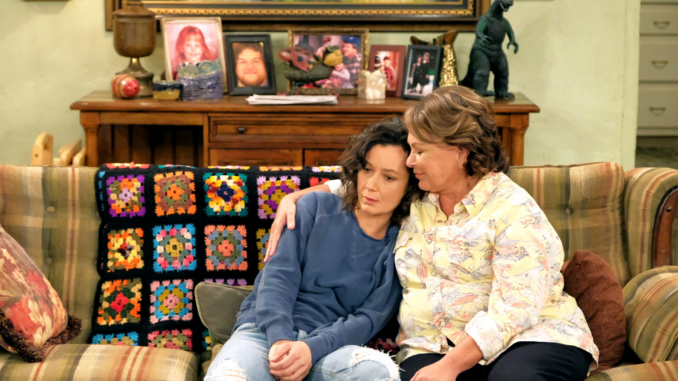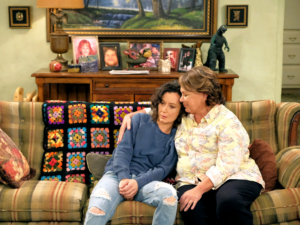
Prepare to have your mind blown! Roseanne was way more than just a sitcom — it was a revolution.
We all know Roseanne for its sharp humor and family dynamics, but did you ever stop to think about how the show was rewriting the entire television landscape? Roseanne wasn’t just a typical sitcom. It pushed boundaries, raised eyebrows, and took a stand on issues that few other shows dared to touch. But the real secret? It was more subversive and clever than anyone realized.
The show’s groundbreaking portrayal of working-class America was revolutionary in itself, but the subtext behind many episodes was a masterclass in political and social commentary. From body image issues to the stigmatization of blue-collar families, Roseanne gave viewers a glimpse into a world few primetime shows ever addressed. The series didn’t just entertain—it started a conversation.
But what about the show’s feminist overtones? Who could forget Roseanne Conner’s fierce personality that defied the usual sitcom “mother” trope? She was not a passive character, and her interactions with her family were a direct challenge to societal expectations of women in comedy. Was Roseanne truly a feminist icon? Or was the show manipulating audiences to believe something that was ultimately much more complex?

From secret political messages to unforgettable controversial storylines, this article will reveal how Roseanne created a cultural shift that no one was prepared for. Forget what you thought you knew — this show was a masterpiece hiding in plain sight. Learn how Roseanne Barr and the team secretly shaped an era of television without most viewers ever realizing it.
